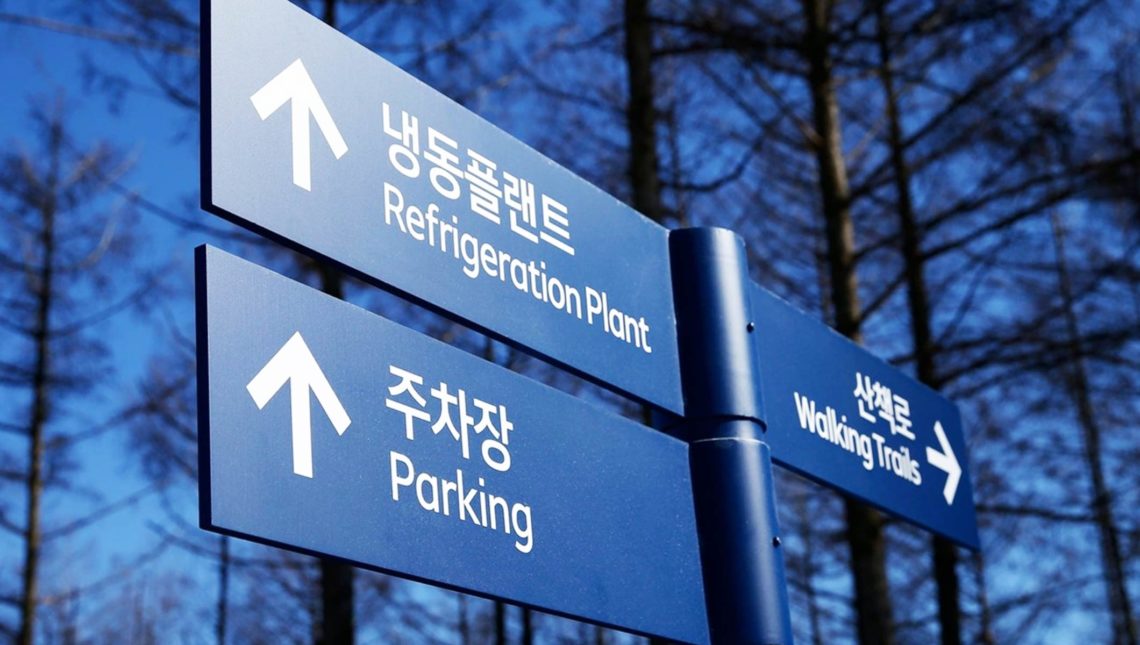
In an effort to improve the sustainability of events, the International Olympic Committee (IOC) has teamed up with the Union of European Football Associations (UEFA) to commission a technical study that identifies sustainable branding and signage solutions.
The guide, “Environmental impact evaluation of branding and signage solutions for events”, explores the branding and signage materials used at events, such as banners, flags, stage dressing or information boards, and identifies key principles for improving their design and procurement decisions.
“Branding and signage are essential to bring colour to an event and engage participants, but can also be a major source of waste,” says Marie Sallois, IOC Director of Corporate and Sustainable Development. “A better understanding of the composition of branding and signage materials and how to optimise their lifecycles, can help reduce their environmental impact. This guide is a first attempt at improving our knowledge on this topic and encouraging more responsible production and use of such materials at events.”
Reusable materials and structures are used increasingly at events, but the need for new printed or customised materials remains. Many of them are synthetic, which makes them easy to use due to their light weight, but difficult to reuse or recycle, according to the guide.
Aimed at event organisers and sustainability professionals, and produced by environmental experts Anthesis, the guide evaluates the environmental impact of over 40 branding and signage materials, including the more innovative ones such as banners made of recycled plastic or hardboards incorporating bio-based content. It also provides guiding principles to improve decision-making within organisations that acquire them. It provides:
- A framework to compare conventional products with alternative products marketed as more sustainable, across five main categories: hardboards, flexible graphics, structural materials, flooring, and self-adhesive decals and films;
- A comparative analysis of the materials’ environmental impact;
- A summary of key observations and recommendations for sourcing;
- Comprehensive information on the actual recyclability of the materials and their overall circularity score, as well as guidance on end-of-life management in different contexts; and
- Case studies describing some of the more advanced solutions to reduce the lifecycle impact of materials.
Based on the guide’s recommendations, the IOC is working with several other major event organisers to develop a set of sustainable procurement criteria for branding and signage solutions. The guide has also been shared with the future Organising Committees for the Olympic Games to help guide their procurement decisions.In line with Olympic Agenda 2020 – the strategic roadmap for the future of the Olympic Movement – the IOC has committed to driving sustainable practices across the International Sports Federations (IFs), National Olympic Committees (NOCs), and the wider sports community. The IOC itself is reducing waste at its headquarters and is working with suppliers to ensure materials used at its events are sourced responsibly. In June 2018, the IOC joined the UN Environment’s Clean Seas campaign to fight plastic pollution in the oceans, calling on the entire Olympic Movement to follow suit. In 2020, the IOC published the “Plastic Game Plan for Sports” guide, which aims to help the sports community address plastic pollution.
The new branding and signage guide will be updated on a regular basis to reflect the evolution of the market and the needs of the stakeholders.
Latest News



Athletes, International Federations and National Olympic Committees honoured as IOC announces winners of Climate Action Awards
Read more
